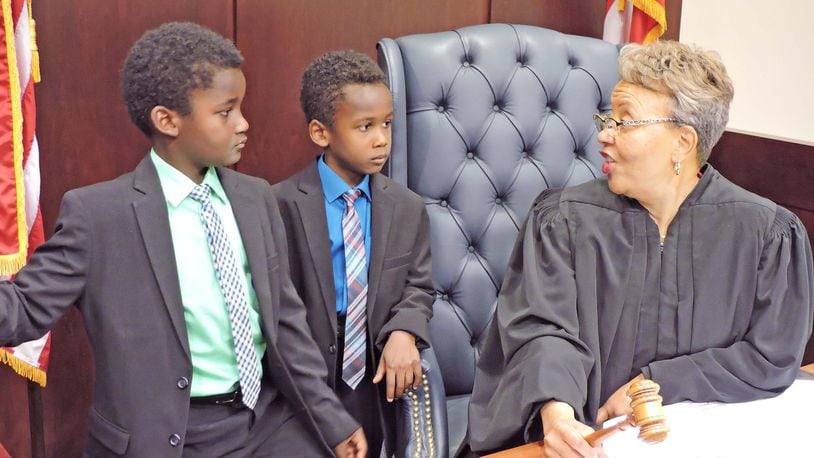“At the end of the day, the most important thing is for children to obtain some level of permanency and not be in a kind of state of limbo to make sure they know that this is their forever home,” said Craig Rickett, Montgomery County Children Services manager of adoption and permanency planning.
About 217 youth are in Montgomery County Children Services’ permanent custody, or about one-third of the children in the agency’s care.
Another 52 children have permanent custody court orders that are under objection or appeal. If they stand, the share of children in permanent custody would rise to about 42 percent.
That “is the highest — in terms of percentages — we’ve ever seen,” said Jewell Good, the assistant director of Montgomery County Children Services.
The courts and county children services agencies prioritize reunifying children with their parents or kin. But when that’s not possible or safe, other action is necessary.
Children need long-term stability in their living situations and permanent relationships and connections and securing these in a timely manner is imperative, officials said.
Several years ago, a state law change imposed new restrictions on when county juvenile courts can place children in planned permanent living arrangements, which is a type of custody status and can include placement in groups homes, foster care, residential centers and with a relative.
Generally, the courts can give child protection agencies three kinds of custody: temporary custody for two years or less; permanent custody and planned permanent living arrangements.
But the courts can no longer place children under the age of 16 into planned permanent living arrangements, local officials said. This custody status is for children who are unable to function in a family-like setting or who are unwilling to accept or adapt to a permanent placement.
State officials and children advocates supported the legislative change because it hopefully will lead to kids finding permanent homes quicker, said Mark Mecum, executive director of the Ohio Association of Child Caring Agencies.
“The goal was to adjust the custody status laws and timelines to motivate the system to safely reunite children with their parents or kin, or make them available for adoption, and to lessen the amount of kids lingering in foster care homes,” he said.
The legal change has contributed to more children ending up in children services’ permanent custody, said Rickett.
Another contributing factor is the county’s permanency roundtable program, which was originally for youth in care 17 months or longer, he said.
Under the program, a team of people identify goals and develop an action plan to meet the youth's needs and connect them with a permanent support system. Participants include the children, their caseworkers and supervisors and anyone else the youth want at the table.
Children services is including more youth in the permanency roundtable process and lowered the age and length of time in care to be eligible to participate, he said.
Permanency can be adoption or reunification with the birth parents, and the roundtables are intended to keep children in care shorter periods and prevent them from aging out without a plan, officials said.
By the end of this year, adoptions will be finalized for 84 children in the children services’ care. That is one less than in 2015. There were 90 adoptions in 2014, which was a big jump from the preceding years.
Of the 217 children in permanent care, 59 have been matched with their forever families, but the adoptions are just awaiting finalization, Rickett said.
“I am thrilled, from my perspective, with that number,” he said.
The county agency hosts a variety of recruiting and social-mixer events and family board game days to connect kids in need of forever homes to adults who are interested in providing them.
About the Author
